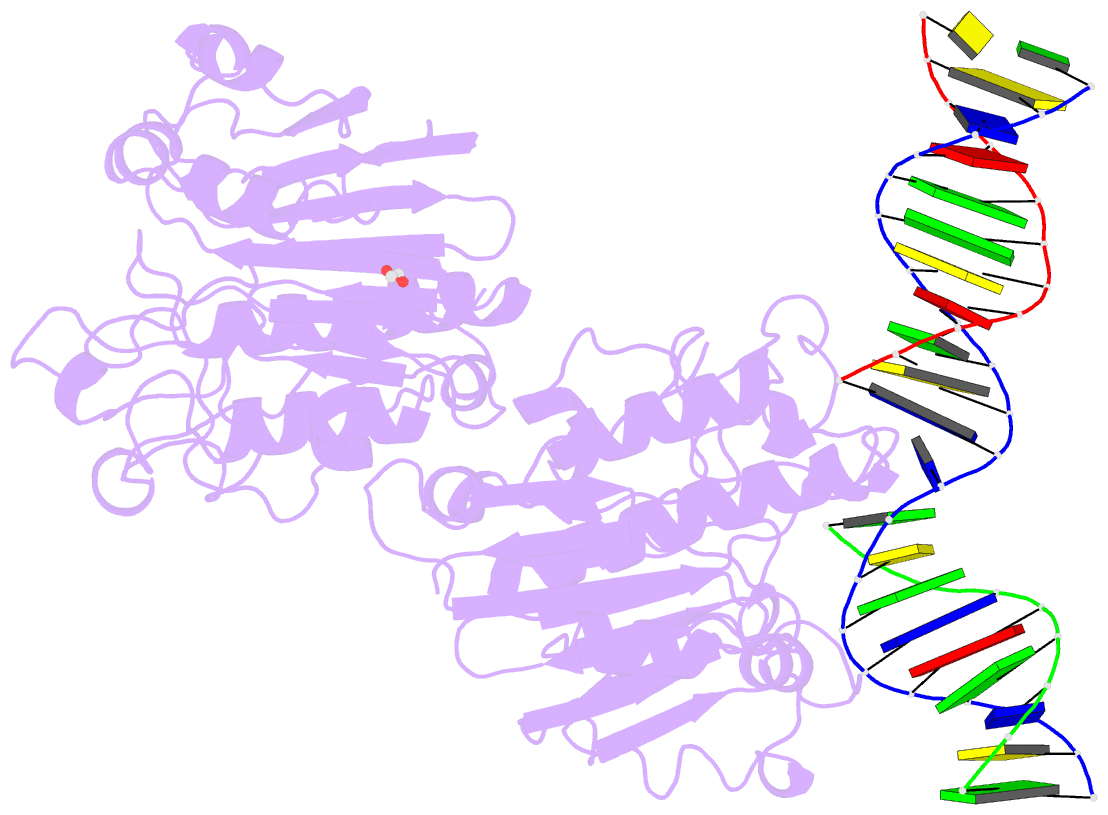Summary information and primary citation
- PDB-id
-
6w3n;
SNAP-derived features in text and
JSON formats
- Class
- DNA binding protein-DNA
- Method
- X-ray (2.69 Å)
- Summary
- Ape1 exonuclease substrate complex d148e
- Reference
-
Whitaker AM, Stark WJ, Flynn TS, Freudenthal BD (2020):
"Molecular
and structural characterization of disease-associated
APE1 polymorphisms." DNA Repair (Amst.),
91-92, 102867. doi: 10.1016/j.dnarep.2020.102867.
- Abstract
- Under conditions of oxidative stress, reactive oxygen
species (ROS) continuously assault the structure of DNA
resulting in oxidation and fragmentation of the
nucleobases. When the nucleobase structure is altered, its
base-pairing properties may also be altered, promoting
mutations. Consequently, oxidative DNA damage is a major
source of the mutation load that gives rise to numerous
human maladies, including cancer. Base excision repair
(BER) is the primary pathway tasked with removing and
replacing mutagenic DNA base damage. Apurinic/apyrimidinic
endonuclease 1 (APE1) is a central enzyme with
AP-endonuclease and 3' to 5' exonuclease functions during
BER, and therefore is key to maintenance of genome
stability. Polymorphisms, or SNPs, in the gene encoding
APE1 (APEX1) have been identified among specific human
populations and result in variants of APE1 with modified
function. These defects in APE1 potentially result in
impaired DNA repair capabilities and consequently an
increased risk of disease for individuals within these
populations. In the present study, we determined the X-ray
crystal structures of three prevalent disease-associated
APE1 SNPs (D148E, L104R, and R237C). Each APE1 SNP results
in unique localized changes in protein structure, including
protein dynamics and DNA binding contacts. Combined with
comprehensive biochemical characterization, including
pre-steady-state kinetic and DNA binding analyses, variant
APE1:DNA complex structures with both AP-endonuclease and
exonuclease substrates were analyzed to elucidate how these
SNPs might perturb the two major repair functions employed
by APE1 during BER.





